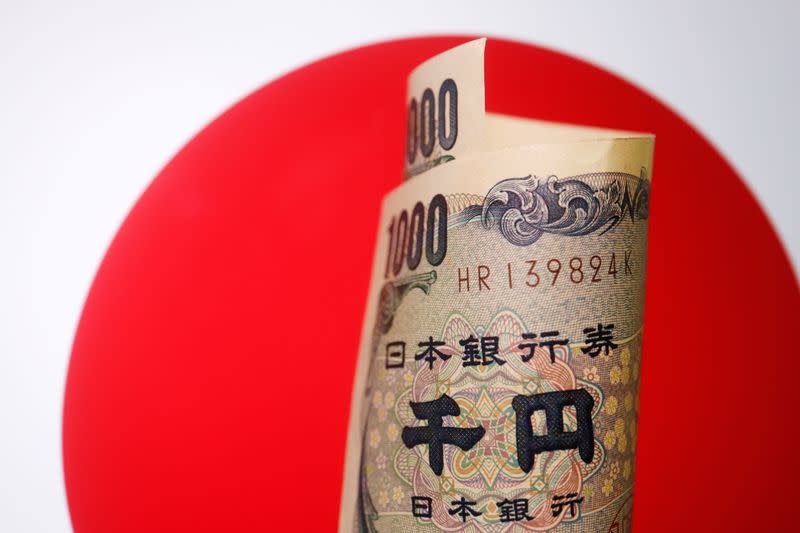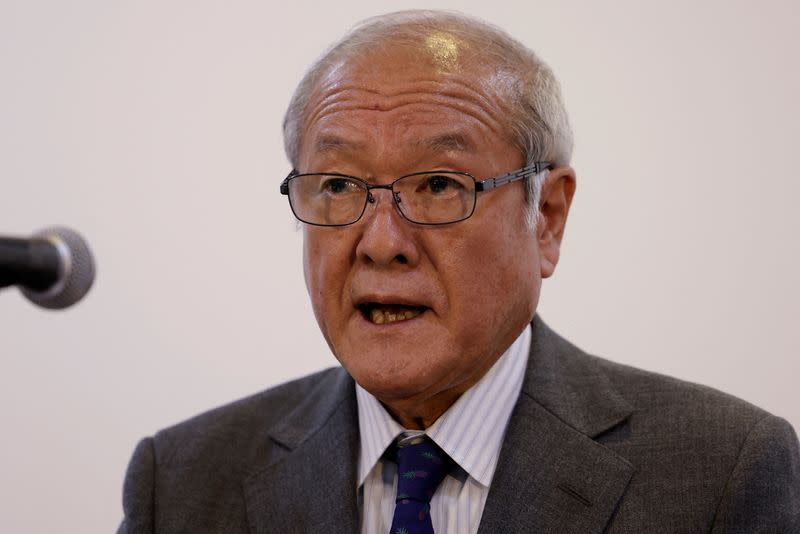By Leika Kihara and Satoshi Sugiyama
TOKYO (Reuters) - Japanese Finance Minister Shunichi Suzuki said authorities were analysing not just recent yen declines but factors that are driving the moves, and repeated that Tokyo stood ready to respond to any excessive currency swings.
Suzuki said finance leaders from the Group of 20 major economies, who will meet in Washington D.C. next week on the sidelines of the spring International Monetary Fund (IMF) gatherings, may discuss currency moves as part of topics for debate.
While a weak yen brings some benefits and drawbacks to the economy, it can hurt consumers by pushing up inflation, he said.
"I can't comment specifically on recent currency moves. But it's important for exchange rates to move stably reflecting fundamentals. Excessive volatility is undesirable," Suzuki said.
"If there are excessive moves, we will respond appropriately without ruling out any options," he told a press conference on Friday.
Suzuki said he was coordinating closely with top currency diplomat, Masato Kanda, to deal with yen moves, but declined to comment on whether they were preparing to intervene in the market to prop up the currency.
Suzuki also did not escalate his warning to take "decisive action" against sharp yen declines, language he used shortly before Japan stepped into the currency market in 2022.
The best-case scenario for authorities is to keep the market on alert for actual intervention to deter the yen from depreciating further, said Tsuyoshi Ueno, senior economist at NLI Research Institute.
"If you keep saying taking 'decisive' action, it will lose its effectiveness," Ueno said. "There is a risk of causing friction when intervening, and it is not possible to intervene indefinitely."
WIDENING YIELD GAP
Suzuki said it was difficult to pin down the sole cause behind the current weakness in the yen, noting that several factors were at play including changes in monetary policy along with balance of payments, price trends, market sentiments and speculative moves.
"In usual thinking, narrowing interest rate gaps would lead to a stronger yen", Suzuki said, when asked by an opposition lawmaker why the central bank's March decision to scale down accommodative policy was followed by yet another wave of currency depreciation.
Fading expectations of a near-term U.S. interest rate cut have accelerated the dollar's ascent as markets focused on the starkly wide U.S.-Japan yield gap.
The yen's slide against the dollar has brought intervention fears back as authorities in Tokyo have repeatedly warned over recent weeks that they would not rule out any steps to deal with excessive swings.


